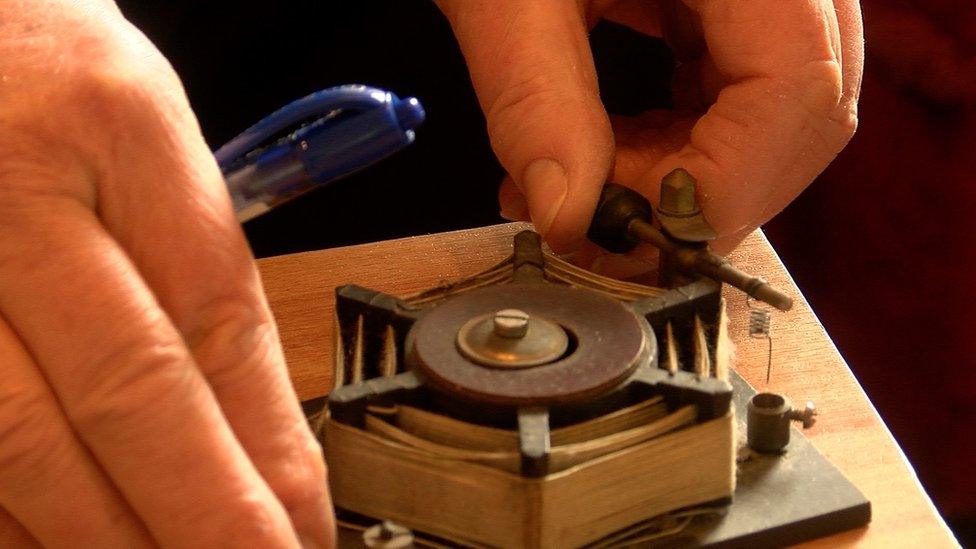Plaque honouring Occupation news agents unveiled
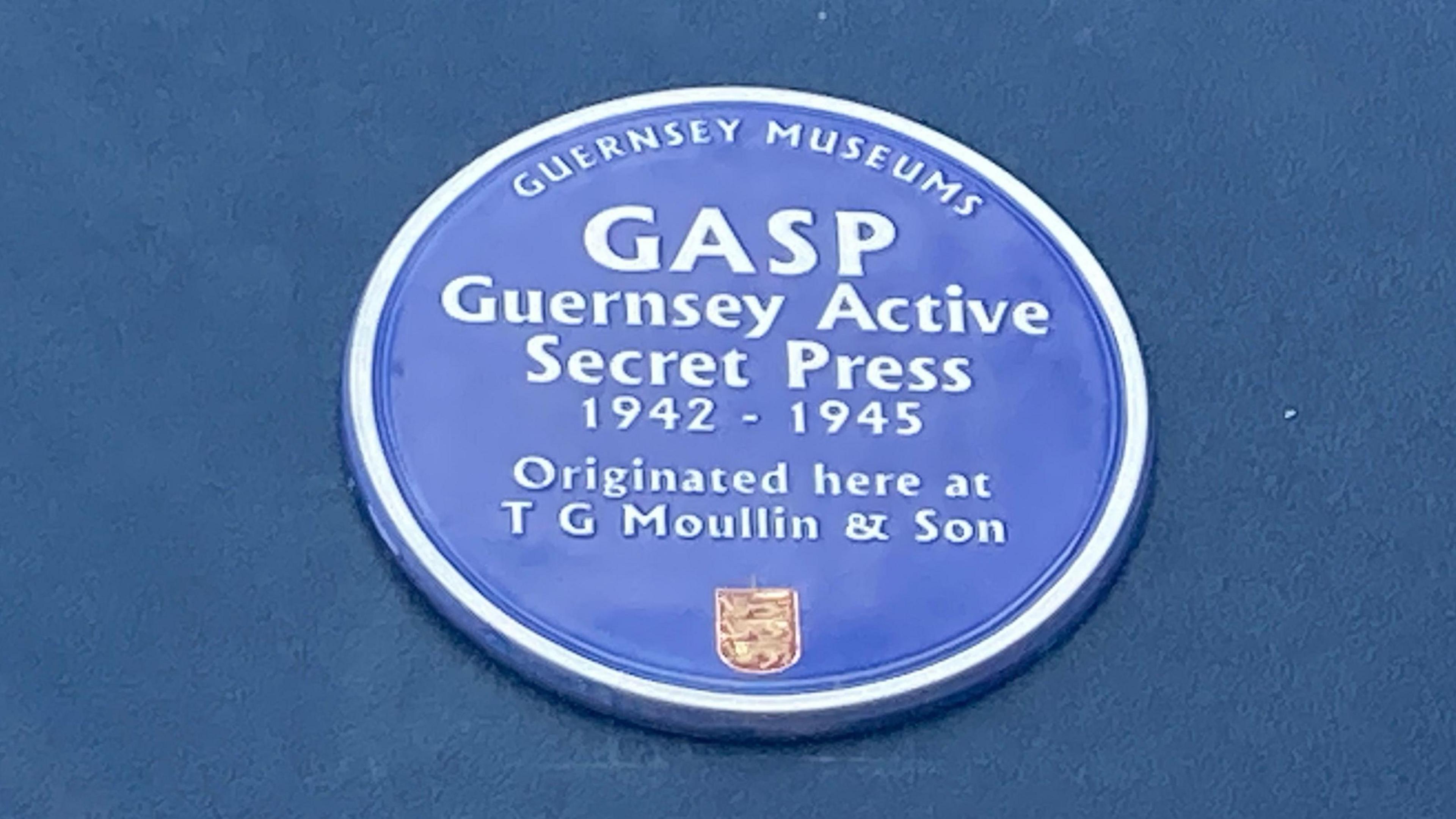
GASP agents produced weekly and monthly newsletters until the end of World War Two
- Published
A blue plaque has been unveiled to honour a secret newspaper which spread British news to people living under Nazi rule during World War Two.
The Guernsey Active Secret Press (GASP) began in 1942 after the confiscation of radios by German occupying forces.
GASP agents listened to broadcasts outside of the island and then produced weekly and monthly newsletters from June 1942 to May 1945.
The plaque, on St George's Esplanade, is placed above what was then the TG Moullin and Sons cycle shop, where many of the newspapers were printed.
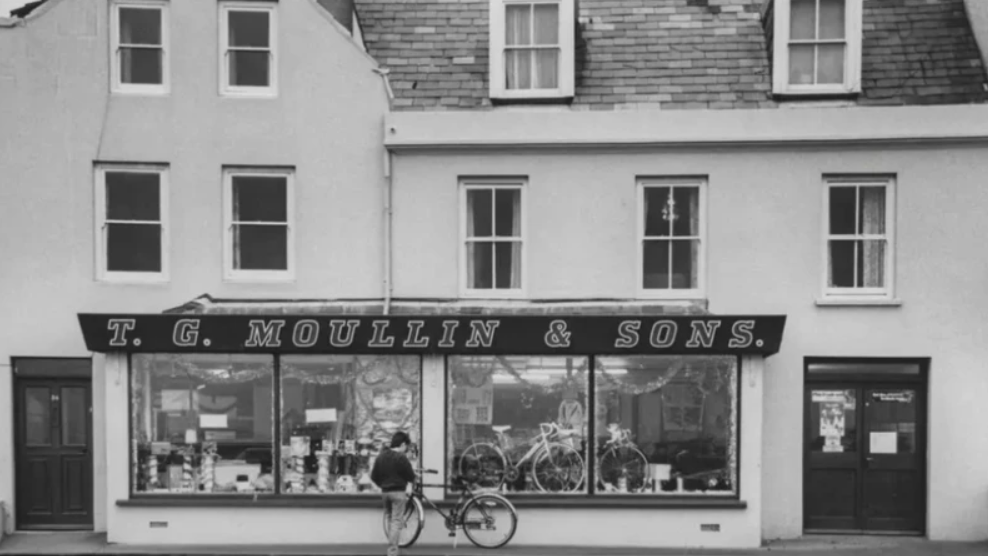
The newspapers were produced above what was then the bicycle shop, TG Moullin and Sons
Mary Sims, whose parents were both involved in GASP, said: "It's hardly surprising that it's taken so long for it to be honoured, because so many people have never heard of it.
"My parents had a radio set made, and then listened into the British news, knowing they would have been punished if the Germans somehow had found out.
"My mum worked for the Bailiff so wrote down the news in longhand, and took it into the Bailiff's office, concealed.
"The Bailiff wouldn't have kept those sheets because I'm sure it would have been too dangerous if they'd got caught, so he must have destroyed them."
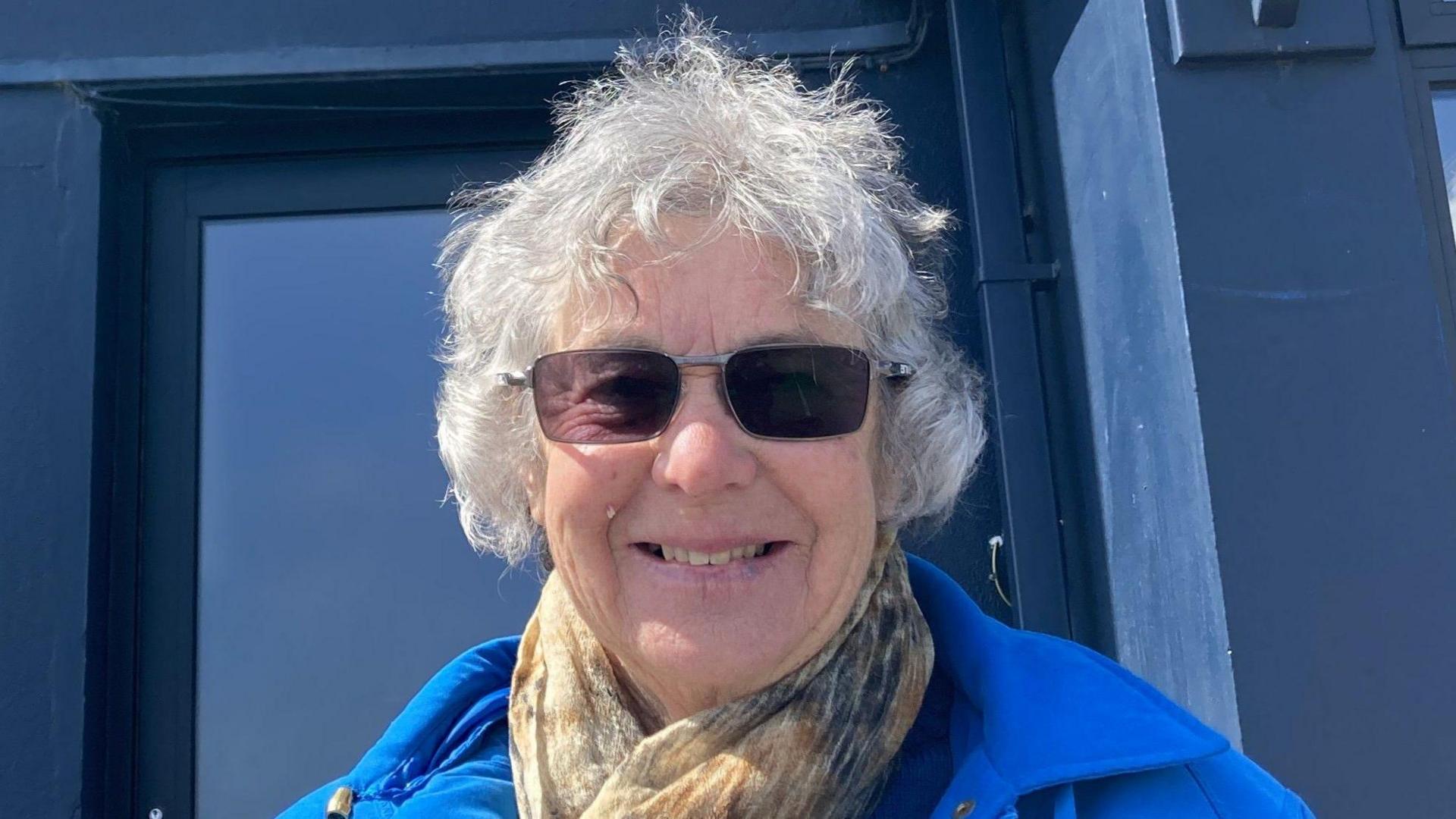
Mary Sims' parents were both involved in GASP
Darryl and Wayne Bertrand's uncle, Ludovic Bertrand, was the editor of GASP.
"The people involved with GASP were very courageous in doing so," Darryl told BBC Radio Guernsey.
"It was good for the people of Guernsey to hear what was going on in the UK and around the world, so this is why these people put themselves forward and did an amazing job.
"So, for the secret press to be doing this work for the island and for the people gave everyone some hope."
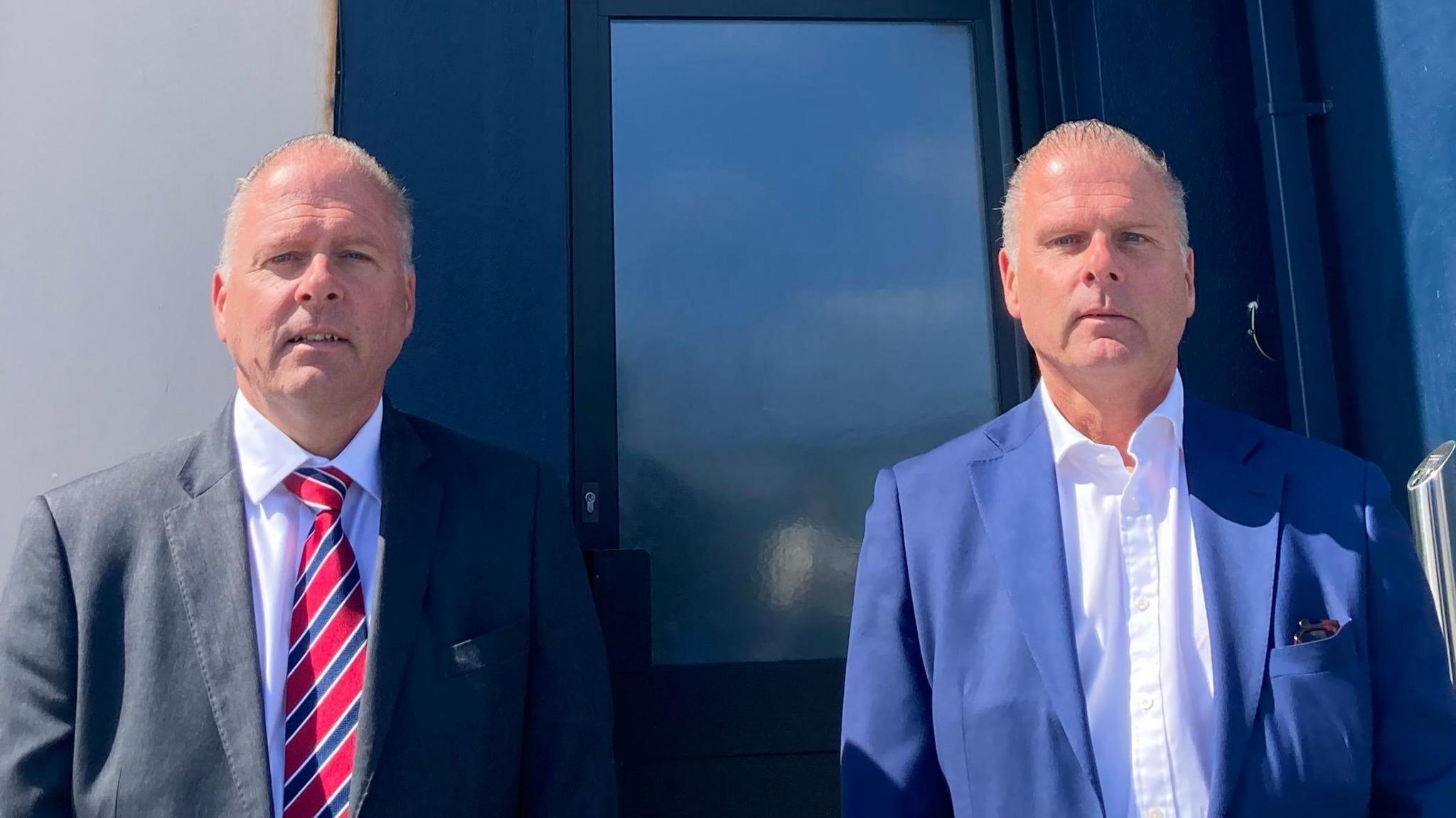
Wayne (L) and Darryl Bertrand are the descendants of GASP's editor, Ludovic Bertrand
When asked what purpose the new blue plaque might serve, Wayne said: "It just keeps the memory alive of all of the hard work and the personal risk that everybody took.
"Young people need to know what the island did for them in order to have freedom today."
Follow BBC Guernsey on X, external and Facebook, external. Send your story ideas to channel.islands@bbc.co.uk, external.
Related topics
- Published29 April

- Published6 May 2022
